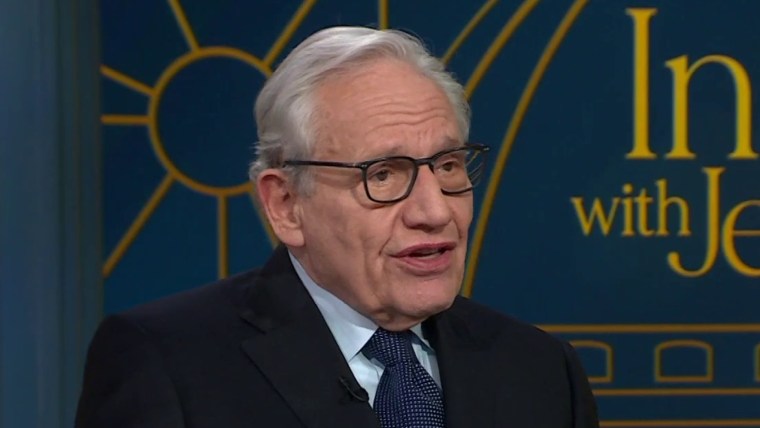This is an adapted excerpt from the Nov. 18 episode of “Inside with Jen Psaki.”
I know there’s a ton happening in Washington right now, and instead of keeping up with all of it, you might be choosing to tune out, to keep your head under the pillow and to watch a bunch of rom-coms in sweatpants. Trust me, I totally get that.
Even if you have been paying attention, you may have found yourself losing track of the many, many, many scandals swirling around the people Donald Trump has chosen for some of the most important jobs in our government. However, these scandals aren’t just salacious tabloid fodder, they matter — not only for how the government is run but what your lives look like over the next four years.
It matters here in the United States and around the world when these are the kind of headlines blanketing front pages about the next administration:
- "Trump defense secretary pick Pete Hegseth denies sexual assault allegation, acknowledges payment to accuser”
- “Trump Pentagon pick had been flagged by fellow service member as possible ‘Insider Threat’”
- “Trump’s pick for top intel job has been accused of ‘traitorous’ parroting of Russian propaganda”
- “Gabbard’s sympathetic views toward Russia cause alarm as Trump’s pick to lead intelligence services”
- “Matt Gaetz, Trump’s pick for attorney general, had been a subject of a sex trafficking investigation”
- “Trump Pick Matt Gaetz Accused of Participating in Up to 10 Drug-Fueled Orgies”
- "Woman told House Ethics panel she witnessed Gaetz having sex with minor, lawyer says"
Let’s pause on that last headline for a second. On Monday, NBC News’ Hallie Jackson spoke with Joel Leppard, a lawyer representing two women who alleged Gaetz paid them for sex. According to Leppard, one of those women told the House Ethics Committee that she saw Gaetz have sex with a minor, although she also testified that she thought the Florida congressman did not know her friend was 17 at the time. (Gaetz denies any wrongdoing. A Justice Department investigation into allegations he engaged in sexual misconduct concluded last year without charges being filed. A separate congressional probe ended last week when Gaetz abruptly resigned from Congress.)
So yes, while this is a lot of information to take in, it’s also important information to take it in. These are the people who will very likely be sitting in the Situation Room or the Oval Office, briefing the president, advising him on any crises our country may face, and having to hold their own next to their foreign counterparts on the world stage.
Historically, part of the reason that nominees for key cabinet positions — especially in these very important jobs — are looked into so intensely is that people with skeletons in their closets are some of the best targets of foreign adversaries for blackmail.
Don’t you think Russia is probably eager to learn more about what may or may not have happened between Hegseth and the woman he paid off? Don’t you think our adversaries are probably looking for ways to find out more about the contents of that House Ethics report into Gaetz? Don’t you think our allies are probably thinking twice about sharing intelligence with Tulsi Gabbard, a Vladimir Putin apologist and Bashar al-Assad sympathizer? (Gabbard has denied accusations she repeated Russian disinformation.)
I think so. And those are questions we should be taking incredibly seriously.
We aren’t powerless here. We don’t have to just throw up our hands at these eye-popping stories and decide there is nothing stopping it.
I know it's only been two weeks since the election, one in which Trump won all seven swing states and made gains in nearly every demographic group. That does warrant some reflection from within the Democratic Party, all the groups that support it, and from all of us too about why that happened and what needs to change. But winning the election doesn’t mean Trump has a mandate to do whatever he wants. It certainly doesn’t mean he has a mandate to force through nominees like Gaetz and Hegseth.
In fact, it actually means the opposite. It means that this is the time to gather your neighbors, to call your members of Congress, to make your voices heard.
The answer right now — and really the job right now for all of us — is to raise concerns when you have them, to voice those concerns, and to never stop questioning.
We aren’t powerless here. We don’t have to just throw up our hands at these eye-popping stories and decide there is nothing stopping it. That’s exactly what Trump wants you to do. He wants you to feel overwhelmed by the sheer volume of headlines and to feel uncertain about how and where to object.
Trump wants you to feel frozen but you aren’t. We have our voices, we can raise questions and we can demand answers.
Allison Detzel contributed.

